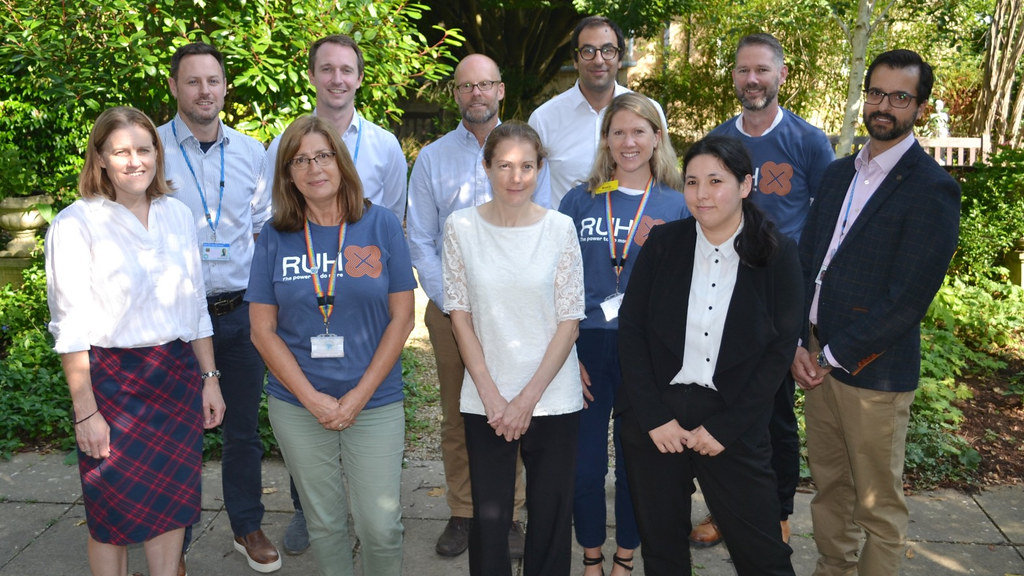Research support
Find out about how we can support and facilitate research within the University of Bath, and local primary and community health and social care organisations.
We support all aspects of applied health research involving primary and community care, from help with preparing research proposals and obtaining relevant approvals, to advising on involving the public in research.
Find out about how we can support and facilitate research within the University of Bath, and local primary and community health and social care organisations.
Research Governance applies to organisations and individuals that have responsibilities for health and social care research.
Understand the costs associated with NHS and HSC research and how we can help with attribution of these costs.
All research that falls within the scope of the UK Policy Framework for Health and Social Care Research requires a sponsor. Find out more about sponsorship.
Before a research study can start in the NHS and Health and Social Care (HSC), it must be approved by the relevant bodies and health regulatory organisations.
This guide will explain what Research Capability Funding (RCF) is, funding eligibility criteria and how to apply.
Patient and Public Involvement (PPI) means research being carried out ‘with’ or ‘by’ patients and members of the public rather than ‘to’, ‘about’ or ‘for’ them. We promote and support PPI through our Participate Network.

People with experience of a health condition, service users and the public can help improve health and social care research by joining our Participate Network.
People with experience of a health condition, health service users and members of the public can improve health research by joining our Participate Network.
Here you will find out what health and care research is, and resources to help you to find a research study that you may want to take part in.
We can support researchers, who are applying for research funding from RDN Portfolio eligible funders, with PPI in their research.
Understand the importance of EDI in health and social care research and learn more about pronouns, protected characteristics and key terms.

Here you will find a brief introduction to Equality, Diversity and Inclusion (EDI) in research and why it is important.
Here you will find links to useful toolkits, guidance, articles, and training to support embedding EDI in your health and social care research.
Here you will find case studies of health and social care research projects that have successfully embedded EDI.
This toolkit is a set of practical resources, designed to help researchers, so they can better support EDI in all aspects of health and social care research.

Here you will find key questions to consider when developing an EDI strategy for your health and social care research funding application.
This guide, created by NHS England, provides practical insights for researchers on how to engage more diverse participants in health research.
These standards and principles will improve participant information, helping to make participant recruitment more inclusive and research more successful.
Here you find out why accessibility is important and what you can do to create accessible content and spaces.
Here you will find an overview on why monitoring the diversity of people involved in your health and social care project is important, and examples of forms.
Understanding barriers to participation in research, and addressing these barriers by making research people-centred, can improve participation in research.
Here, BSW Research Hub puts a spotlight on health and social care research initiatives that support diversity in research and promote research in primary and community care; and studies that have improved the lives of patients.

BSW Diversity in Health Research Network – Increasing Diverse Participation in Research across Bath and North East Somerset, Swindon and Wiltshire.
Spotlight on health and social care research supported by local primary and community care organisations, that have improved the lives of patients.
Infographic was developed to showcase the benefits of delivering commercial research in the wider health and community setting.
Our latest news and updates.

A ground-breaking new medical device developed by Dr Ioannis Georgilas improves the accuracy of drilling screw holes into bones during surgery.

How research from the Royal United Hospital and the University of Bath is changing lives

A collaborative project led by the RUH is spearing a new innovative lifestyle intervention – ‘Super Rehab’ - to save lives and reduce hospital procedures.
Find out more about local research and the benefits of taking part.
The NIHR has launched a requirement that all applicants show how their research will address inequalities in health and social care as a condition of funding.
Find out about the new NIHR Research Delivery Network (RDN) that has been launched and replaces the NIHR Clinical Research Network (CRN)
Our team members and what they do.
BSW Research Hub Manager oversees research within the Department for Health and research active primary and community care partner organisations.
Supports research governance activities for the Department for Health, BSW Integrated Care Board and primary and community care partners.
We are a partnership between B&NES, Swindon and Wiltshire Integrated Care Board, the Department for Health within the University of Bath (where the Hub is located) and local community healthcare providers Wiltshire Health and Care and HCRG Care Group.
We also have active links with research staff at local charitable organisations including Designability, ReMind UK, Dorothy House Hospice, Prospect Hospice and Baby Check Bath CIC.
Contact us to find out more or to ask any questions.